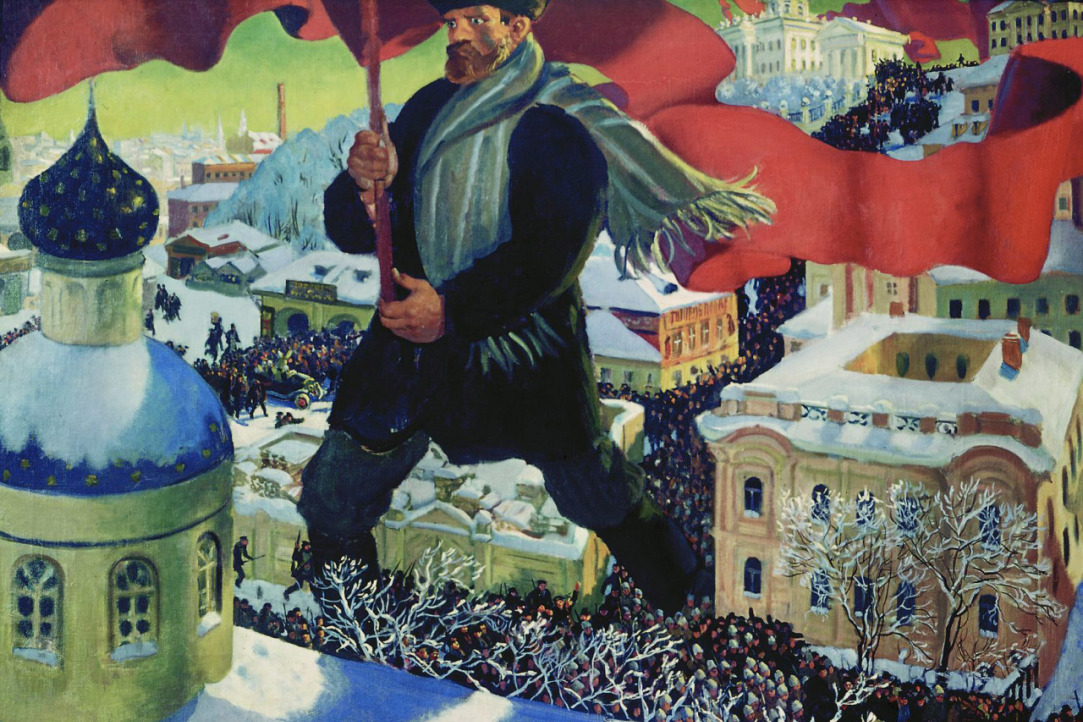
What Mitigates the Consequences of Recession for Companies?
HSE experts demonstrated that companies with foreign participation have an easier time overcoming the consequences of economic recessions. The results of the study were presented in the paper ‘Lean against the wind: The moderation effect of foreign investments during the economic recession in Russia’ published by the Journal of Economics and Business.

Overcoming the Revolution
A hundred years has passed since the October Revolution of 1917, but this event still hasn’t reached its logical conclusion. Its consequences are still crucial in defining the political system in Russia today and fostering divisions in society, believes Andrey Medushevsky, Professor at the HSE Faculty of Social Sciences, political scientist, historian and author of the book A Political History of the Russian Revolution: Norms, Institutions and Forms of Social Mobilization in the 20th Century.
Alzheimer, Parkinson Et Al
Globally, the burden of neurological disorders (Alzheimer’s disease, Parkinson’s disease, stroke, epilepsy etc) has increased substantially over the past 25 years. This problem is the topic of a recent report by the Global Burden of Disease (GBD) international project, which was published in The Lancet. One of its participants is Vasily Vlassov, Professor at the HSE Faculty of Social Sciences.

Immeasurable Hardiness of Character
The Grit Scale questionnaire has gained popularity over the past decade, not only in research but also in practical psychology and in employee selection. The questionnaire is used to measure 'grit' – a personality trait which combines perseverance in reaching one's goals, on one hand, and consistency of one's interests over time, on the other. HSE researchers have found a way to prove that 'grit' is not a single personality trait and the Grit Scale measures two independent constructs.

Artificial Intelligence Society
Cultural Evolution, a new book by Ronald Inglehart, American sociologist, professor at the University of Michigan and academic supervisor of the HSE Laboratory for Comparative Social Research, is currently being prepared for publication in Russia. Russian readers will be the first to read the prominent scholar's book, as its Russian translation will come out before the American original. The Russian translation of the book has been prepared by the Liberal Mission Foundation and the LCSR.
Researchers Learn More about Maximizing Brain Use
Neuroscientists from Higher School of Economics and Charité University Clinic in Berlin have come up with a new multivariate method for predicting behavioural response to a stimulus using information about the phase of preceding neuronal oscillations recorded with EEG. The method may eventually find practical application in fields such as competitive sports, education and patient treatment. The study's findings are published in the paper ‘On optimal spatial filtering for the detection of phase coupling in multivariate neural recordings’.
HSE Offers Psychometric Analysis of Online Courses
The HSE Centre for Psychometrics in eLearning is currently developing techniques, tools, and automated services for psychometric analysis of online courses as part of the project ‘Modern Digital Educational Environment in the Russian Federation’. In this respect, HSE was the winner of a competition held by the Russian Ministry of Education and will receive a grant for developing analytical approaches for e-learning.

HSE Researchers Find Optimal Rules for Seedings in Knock-out Tournaments
Researchers have conducted a study on tournaments using the playoff system, which is one of the most popular forms of sporting competitions. The results of the study were published in the Journal of Combinatorial Optimization.

Doing Business No Matter What
Having a career as entrepreneur is possible even in adverse circumstances, such as going against one’s family, lacking connections and living in a small provincial community; all of these can stimulate rather than hinder one's entrepreneurial drive, found HSE researchers after studying the life trajectories of young Russian business owners. The study findings are presented in the paper 'Biography as a Tree of Choices: Discovering the Life Trajectories of Young Entrepreneurs in Russia'.

Victims Rather Than Enemies
A series of in-depth interviews conducted by HSE researchers reveal what young residents of Dagestan think of their peers who have joined ISIL. The latter tend to be perceived as victims of brainwashing and unresolved social problems rather than enemies, the study shows.


Registration is open until April 1, 2025